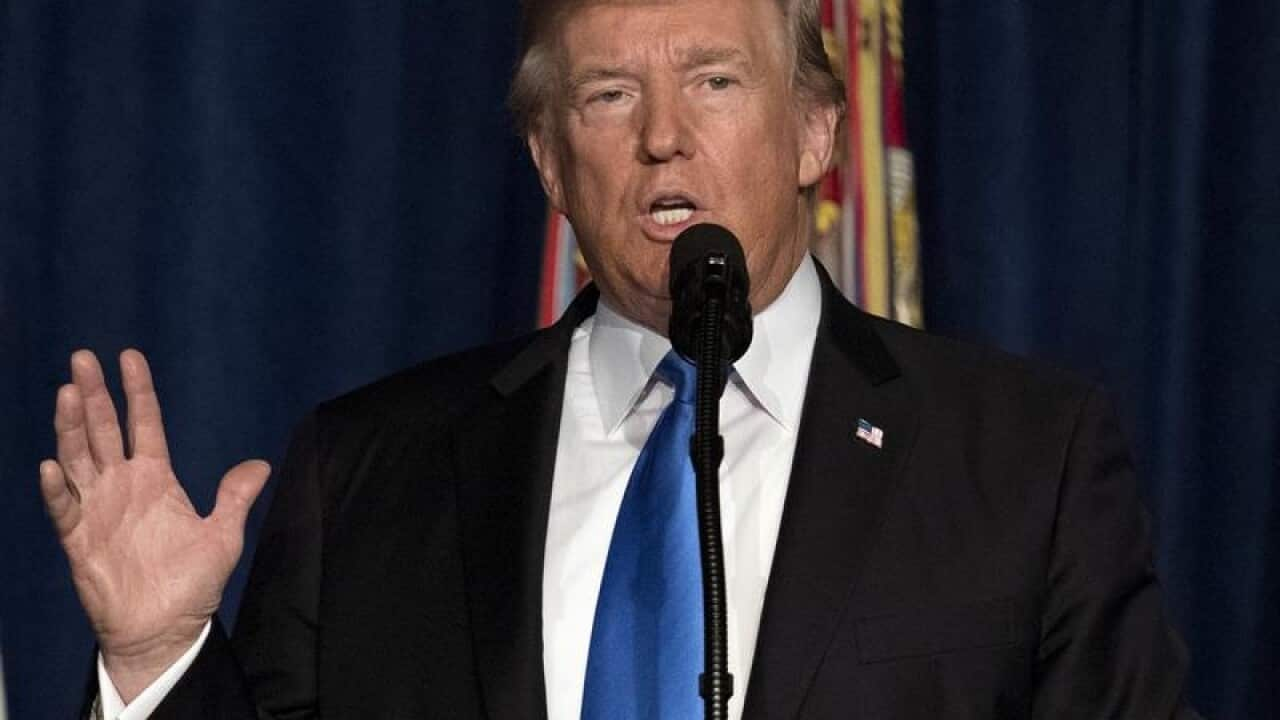American forces, along with allies including Australia, are likely to remain in Afghanistan for years to come with US President Donald Trump reneging on repeated pre-election promises to pull American forces out of the war-torn nation.
Mr Trump said he had studied Afghanistan in great detail since moving into the White House in January and concluded a "hasty withdrawal would create a vacuum that terrorists, including ISIS and Al Qaeda, would instantly fill".
A rapid exit would also provide a safe haven similar to the one that allowed the September 11, 2001 terror attacks on the US to be launched.
The president on Monday declined to talk about US troop numbers or confirm reports he had agreed to boost America's deployment in Afghanistan by 4000 because he did not want to tip off the enemy.
"We will work with allies and partners to protect our shared interests," Mr Trump said during his much-anticipated speech at the US Army's Joint Base Myer-Henderson Hall in Arlington, Virginia.
Mr Trump did bluntly call on Pakistan and India to do more to help create peace in Afghanistan.
The president said India made billions of dollars in trade with the US and he wanted India to not only do more in Afghanistan, but also help the US pursue peace and security in South Asia and the broader Indo-Pacific region.
He criticised Pakistan for providing safe haven to terrorists and said the US "can no longer be silent" on Pakistan's stance.
"Today 20 US designated foreign terrorist organisations are active in Afghanistan and Pakistan - the highest concentration in any region of the world," Mr Trump said.
"For its part, Pakistan often gives safe haven to agents of chaos, violence and terror."
The US and Australian forces have been in Afghanistan since 2001, making it the longest war for both countries.
In May Australia added 30 troops, bringing its deployment to 300, to help the NATO-led training and assistance mission in Afghanistan.
The US has 8400 troops in Afghanistan.
For years Mr Trump blasted the Bush and Obama administrations for the prolonged war, firing off angry tweets and offering colourful quotes in interviews.
On the campaign trail last year he vowed to pull US forces out, but his seven months in the White House changed his mind.
"My original instinct was to pull out, and historically I like following my instincts, but all of my life I heard that decisions are much different when you sit behind the desk in the Oval Office," Mr Trump said.
"So I studied Afghanistan in great detail and from every angle."
The strategy going forward would be to "fight to win".
"From now on, victory will have a clear definition: attacking our enemies, obliterating ISIS, crushing al-Qaeda, preventing the Taliban from taking over the country, and stopping mass terror attacks against Americans before they emerge," he said.









